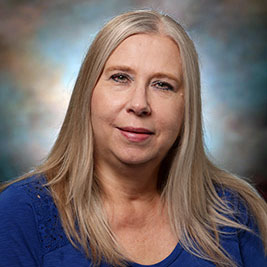KINGSVILLE (September 13, 2023) — Dr. Richard Laughlin, associate professor and chair of the biological and health sciences department, recently received $2.4 million in federal funding from the United States Department of Agriculture’s Animal and Plant Health Inspection Service (USDA APHIS) for Surveillance of SARS-CoV-2 in Wild and Domestic Animal Populations in Central and South Texas.
Coronaviruses, like SARS-CoV-2, have been documented in domestic animals, companion animals and wildlife, Laughlin said. “A wide range of mammals are known reservoirs for coronaviruses. The virus can persist in these animals, causing little to no symptoms. In rare cases, there can be a ‘spillover event’ where the virus is able to jump to a new host species. The SARS-CoV-2 virus that caused the pandemic in humans has been detected in several companion, domestic and wild animals.
“It is unclear what other species-domestic, companion or wild-might be susceptible to infection with SARS-CoV-2. Additionally, there is limited data on the prevalence of the virus in most animal populations,” Laughlin added.
Laughlin proposes to test as many different types of mammals as possible. “We have assembled a first-rate team of researchers from Texas A&M-Kingsville: specialists in molecular biology, wildlife biology, veterinary medicine, animal science and wildlife epidemiology to tackle this challenge. We will be reaching out to local veterinary practices, animal shelters and the community for the opportunity to test companion animals,” he said.
“We have identified about 65 different wildlife species in Central and South Texas to sample. The list ranges from field mice and bats, to raccoons and opossum, to white-tailed deer and javelina. We also have identified a number of locations-urban, suburban and rural-to conduct our surveys.
“Beyond looking for the SARS-CoV-2 virus, we will sequence the gene of the host receptor, ACE2, which is used by the virus to enter the cell. This data will be used to analyze the host-pathogen interaction and identify potentially susceptible animals to SARS-CoV-2 infection,” Laughlin said. “Many of our target animals have never been studied in this way, so we believe we can add a great deal of information to the scientific discussion.”
He said the animals that are used for this study will be swabbed, much like humans were swabbed during the pandemic, with the swabs studied in the lab. Some of the animals will be given a small tracking device called a PIT tag to identify those previously captured in future surveillance efforts.
“It is important to understand the broader landscape of zoonotic disease and what animals may be potential reservoirs for SARS-CoV-2. With better data, we will be able to respond more precisely to future disease outbreaks,” Laughlin said. “We know many mammal species were susceptible to infection from SARS-CoV-2 positive humans during the pandemic. There are isolated cases during the pandemic where SARS-CoV-2 is suspected to have infected humans from animal sources.
“A main purpose of our funding is to fill in some of the gaps in knowledge about the biology and immunology of mammals potentially susceptible to infection,” he said.
“We are greatly interested in adding to the knowledge of the scientific community for the distribution and susceptibility of SARS-CoV-2 across mammalian populations in Central and South Texas. This will serve as a launching point to build collaborations for larger research projects for Texas A&M-Kingsville to provide experience for our students and serve South Texas,” Laughlin said.
Funding is for two years in 2023 and 2024 with an additional year that is unfunded, he said. Funding will provide for the hiring of a postdoctoral scientist, lab manager and graduate students with a stipend for undergraduate students. Laughlin said they will hire three to five graduate students and up to 10 undergrads each semester.
“We have designed this grant to not only do cutting-edge science, but to also give our students the opportunity to participate in research and gain important lab experience.”
Other members of the grant team are co-investigators Dr. Clayton Hilton, professor and Jo and Bruce Gunn Endowed Director of Veterinary Technology; and Dr. Scott Henke, Regent’s Professor in the rangeland and wildlife sciences department; and collaborators Dr. Jason Apple, Professor, department of Animal Science and Veterinary Technology; Dr. Alynn Martin, assistant professor in the Caesar Kleberg Wildlife Research Institute; and Dr. Kyle Shaney, assistant professor in the biological and health sciences department.
-TAMUK-
